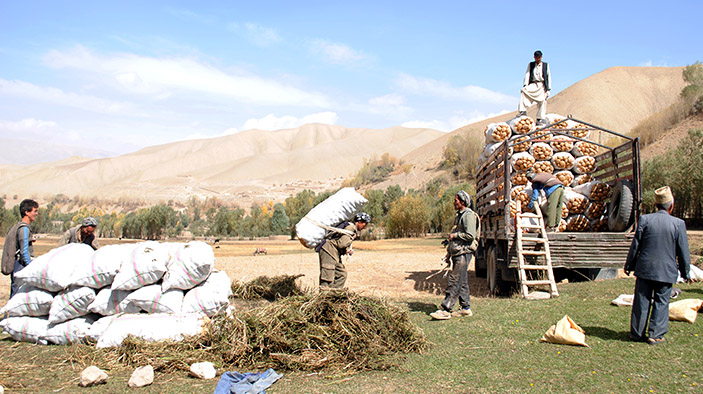Afghanistan—Regional Agricultural Development Program (RADP–East)
Client: U.S. Agency for International Development
Duration: 2016-2021
Region: Eastern Europe and Central Asia
Country: Afghanistan
Solutions: Economic Growth
The Regional Agricultural Development Program-East (RADP-East), funded by the U.S. Agency for International Development, addressed issues of unreliable irrigation, poor agricultural cultivation techniques, and a lack of knowledge about accessing new markets, by using a value chain facilitation strategy to improve crop yields and find new outlets for rural Afghan farmers to sell their harvests, thereby increasing the food and economic security of the region.
DAI took a flexible approach in implementing the program, emphasizing collaboration with local Afghan partners in analyzing existing value chains and training farmers, agribusinesses, and financial partners on methods to increase production and revenue.
More than 13,300 households benefited from agriculture and alternative development interventions; more than 6,500 individuals were trained on food security or agriculture sector productivity; and more than 6,800 farmers have applied new technologies or management practices.

Sample Activities
- Rigorously evaluate agricultural value chains in the region, and select crops and producers best positioned for market expansion.
- Support mobile phone text marketing, live radio shows, and farmer field day initiatives to promote innovative production and processing techniques and connect farmers to buyers.
- Provide matching grants to grower associations, farm service centers, and agricultural depots to improve business management and operations practices.
- Build capacity of business services that support farmers’ organizations and agribusinesses to provide accessible financing and produce sustainable business plans.
- Facilitate participation in trade fairs and exhibitions to stimulate domestic and international demand for Afghan agricultural products.
Select Results
- Co-financed grants to improve business processes at selected firms, awards for which have amounted to $3.7 million since the beginning of the project in 2016. By the end of 2019, those firms that received co-financing grants were producing a total of $33.4 million in sales.
- Created more than 1,600 full-time jobs.
- Referred 58 agribusinesses to various lending institutions for credit. Thus far, five loans have been successfully disbursed to the referred agribusinesses, for a total value of more than $250,000—enabling the companies to expand operations, upgrade facilities and equipment, and expand their market.
- Facilitated 20 business-to-business matchmaking meetings, recording $241,200 worth of potential deals for supported entrepreneurs who also earned $3,000 from on-the-spot sales of their agricultural products at an October 2019 tradeshow.
- Conceptualized an awareness program focusing on how to recognize hemorrhagic fever, what to do during livestock farming and slaughtering to reduce the risk of human infection, and how to limit the viral spread and impact on the people dealing with livestock. By mid-October 2019, awareness training was delivered to 800 dairy farmers and butchers, of whom 160 were women.
- Supported the 2018 production of a Borrower’s Guide to provide potential borrowers information on financial products and services available in financial institutions in Afghanistan.
- Exported about $2.1 million of processed and fresh apricots.
RELATED CONTENT:
Lesotho—Cooperation Facility and Visibility and Communication Strategy
The project’s focus is to promote financial inclusion, assist in Lesotho’s transformation into a greener and more resilient economy, and foster good governance for a peaceful and just society.
Read More